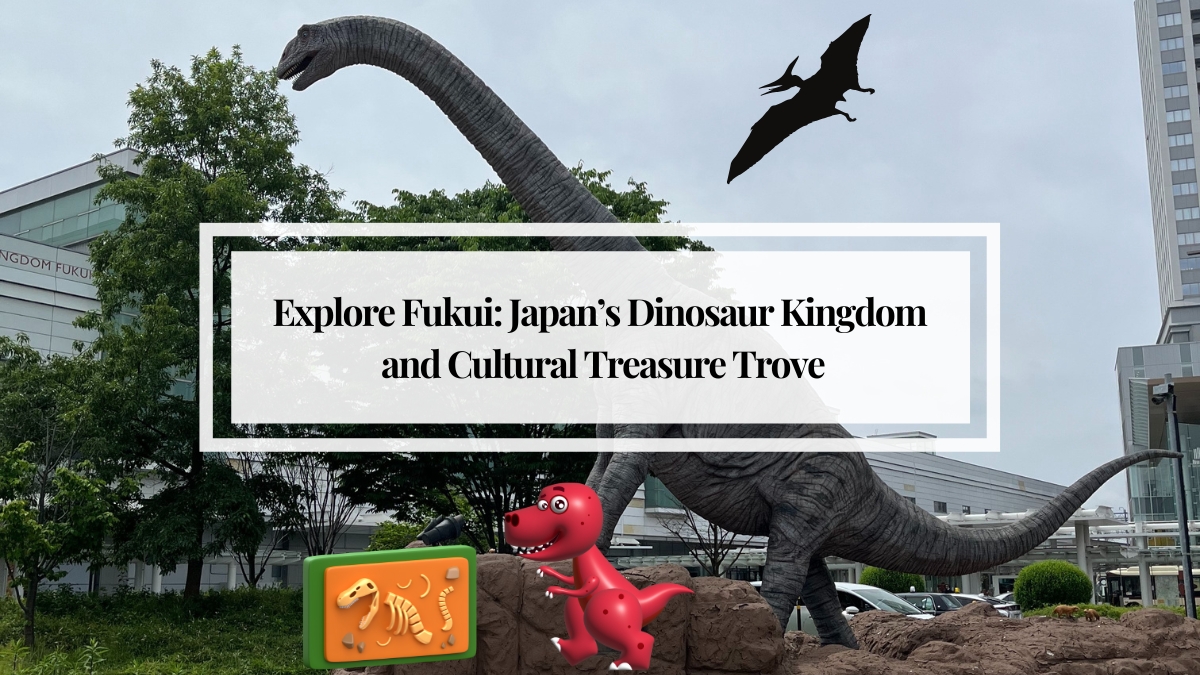Located in northern Fukui Prefecture, Fukui City is a harmonious blend of deep history, stunning nature, and scientific wonder. This charming capital city is home to cultural treasures like the Ichijōdani Asakura Clan Ruins, a preserved samurai town from the Warring States period, and the tranquil Yōkōkan Garden, once a feudal lord’s villa. Nature lovers will be drawn to the rugged beauty of the Echizen Coast, the seasonal allure of Asuwayama Park, and panoramic seaside sunsets. A highlight for families and curious minds is the Fukui Prefectural Dinosaur Museum, one of the world’s top dinosaur museums—fitting for a region where nearly 80% of Japan’s dinosaur fossils have been unearthed.

Around JR Fukui Station, life-sized dinosaur monuments greet visitors, while the surrounding areas offer easy access to the sea and mountains—just an hour from the coast and less to scenic countryside. The city also satisfies food lovers with fresh seafood, including the prized Echizen crab, and local specialties like Oroshi soba (grated radish noodles).

With four distinct seasons, Fukui offers spring cherry blossoms, summer swimming and camping, vibrant autumn foliage, and winter sports like skiing and snowboarding. Travelers should prepare for snowy winters and hot summers, but spring and autumn are especially pleasant for sightseeing. From ancient ruins and culinary delights to dinosaurs and dramatic coastlines, Fukui City offers a uniquely enriching experience in every season.
Fukui Prefectural Dinosaur Museum 福井県立恐竜博物館
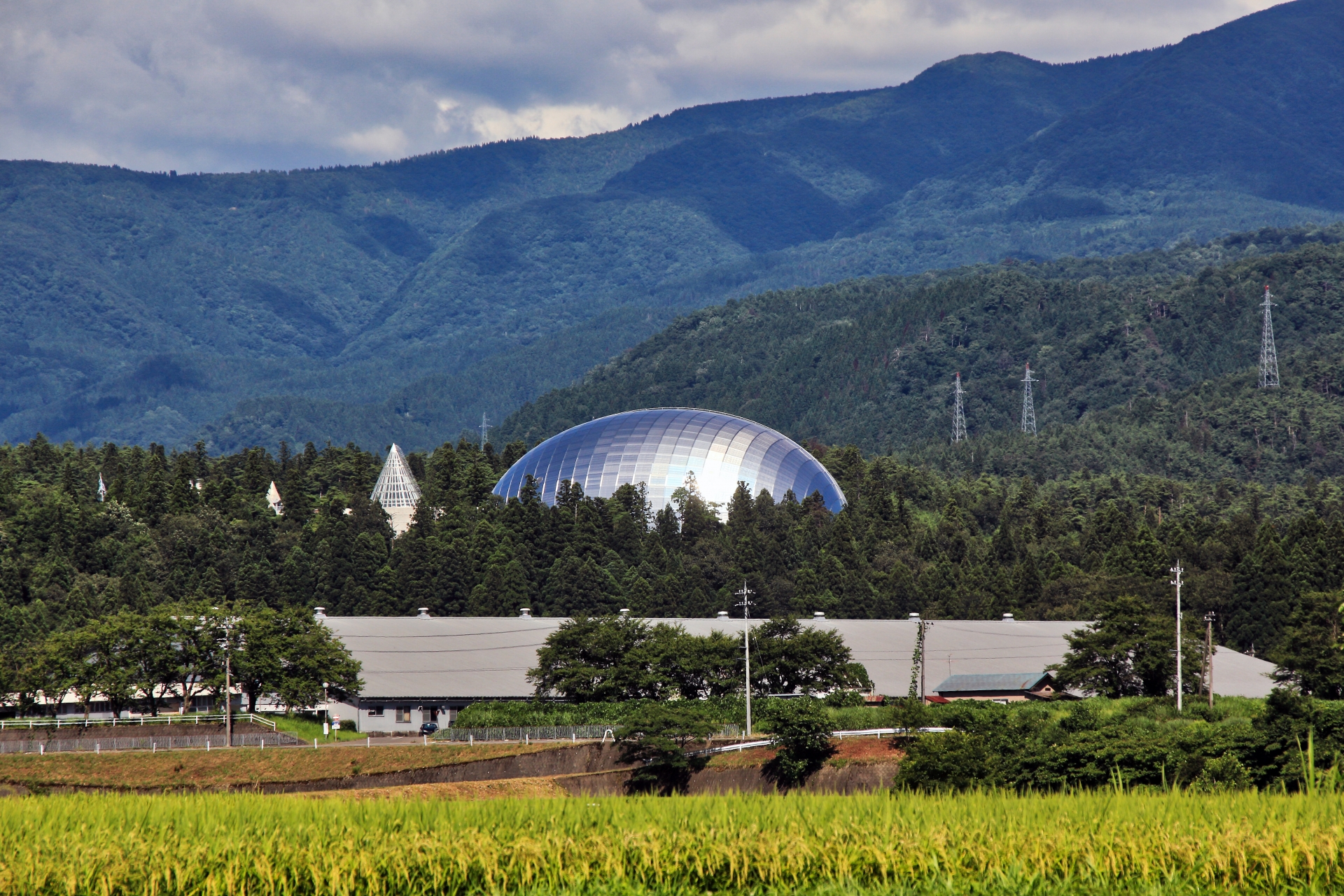
Ranked among the world’s top three dinosaur museums, the Fukui Prefectural Dinosaur Museum is a must-visit destination for anyone intrigued by prehistoric life. Located in the heart of Fukui, this expansive, dome-shaped museum offers a captivating blend of science, history, and hands-on experiences that delight both children and adults. Step into the immersive “World of Dinosaurs” where over 50 full-body skeletons—10 of which are actual fossils—stand in awe-inspiring formation. Explore rare fossil specimens, including new species discovered right in Fukui, and engage in real scientific experiences such as fossil cleaning, CT scanning, and excavation simulations. Don’t miss the towering “Dinosaur Tower”, a dramatic monument celebrating local dinosaur discoveries, or the triple-screen Dino Theater, where life-size dinosaurs roam just inches away. From interactive exhibits and visible storage rooms to panoramic rooftop views, this museum offers a truly sensory journey into the age of dinosaurs. Come and experience the thrill of ancient life like never before—only in Fukui.
Ichijōdani Asakura Clan Ruins 一乗谷朝倉氏遺跡
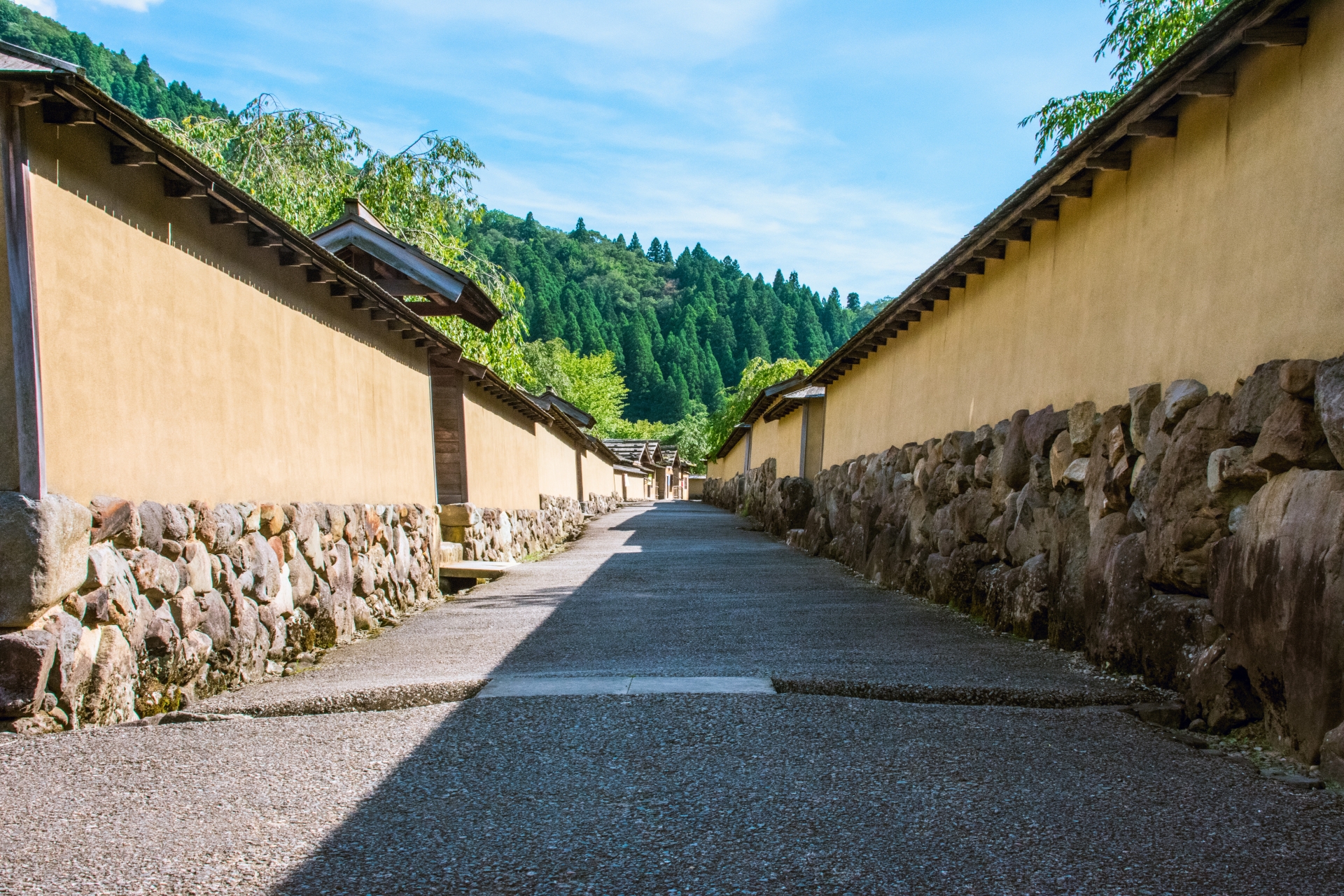
Immerse yourself in the world of feudal Japan at the Ichijōdani Asakura Clan Ruins, a remarkably preserved castle town that once flourished under the powerful Asakura clan during the Sengoku (Warring States) period. Officially designated as both a Special Historic Site and a Special Place of Scenic Beauty, this atmospheric location lets visitors walk through faithfully reconstructed streets, residences, and gardens that evoke the essence of 16th-century Japan. From May through summer, the ruins come alive with the seasonal event “Wagasa Sky: Natsu”, where around 300 traditional wind chimes and vibrant Japanese umbrellas (Wagasa) are suspended above the “Restored Townscape.” The gentle sound of chimes dancing in the breeze and the vivid colors set against fresh foliage and clear skies create an enchanting scene beloved by photographers and travelers alike. This summer-only installation continues until late September, with evolving displays to keep the experience fresh. A small entry fee grants access to this rare, immersive cultural journey—perfect for history enthusiasts and lovers of traditional Japanese aesthetics.
Yōkōkan Garden 養浩館庭園
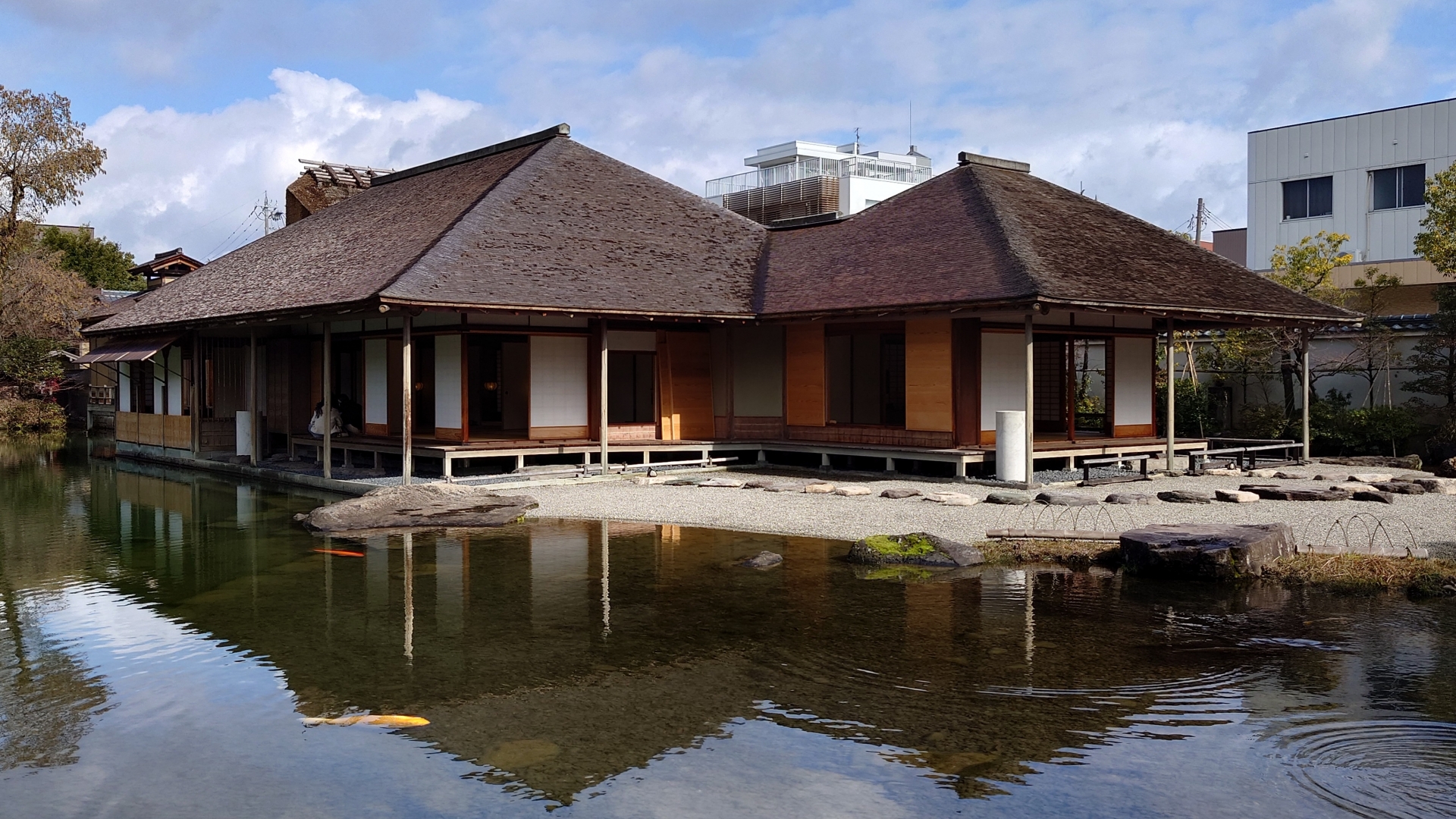
Just a 10-minute walk from Fukui Station and only 5 minutes from the ruins of Fukui Castle, Yōkōkan Garden offers visitors a serene retreat into the refined world of Edo-period Japan. Once the elegant villa of the Matsudaira clan, lords of the Fukui Domain, this strolling-style Japanese garden (kaiyū-shiki rinsenteien) is centered around a large reflective pond and surrounded by traditional Shoin-style architecture. Originally known as “O-sensui Yashiki”, the garden served as a place of rest and contemplation for the feudal lords. Though destroyed during World War II, it was faithfully restored in 1993 using an 1823 historical drawing, following its designation as a National Place of Scenic Beauty in 1982.
Throughout the seasons, the garden transforms into a canvas of natural beauty: cherry blossoms in spring, vibrant greens in summer, fiery maple leaves in autumn, and peaceful snow scenes in winter. Particularly breathtaking is the autumn foliage, which draws photographers and nature lovers alike. The garden’s harmony of architecture, water, stonework, and carefully pruned trees has earned it a place among the top-ranked Japanese gardens in the Journal of Japanese Gardening.
Whether you’re a history buff, a garden enthusiast, or simply seeking a peaceful moment, Yōkōkan Garden is a cultural jewel not to be missed.
Fukui City Museum of History 福井市立郷土歴史博物館
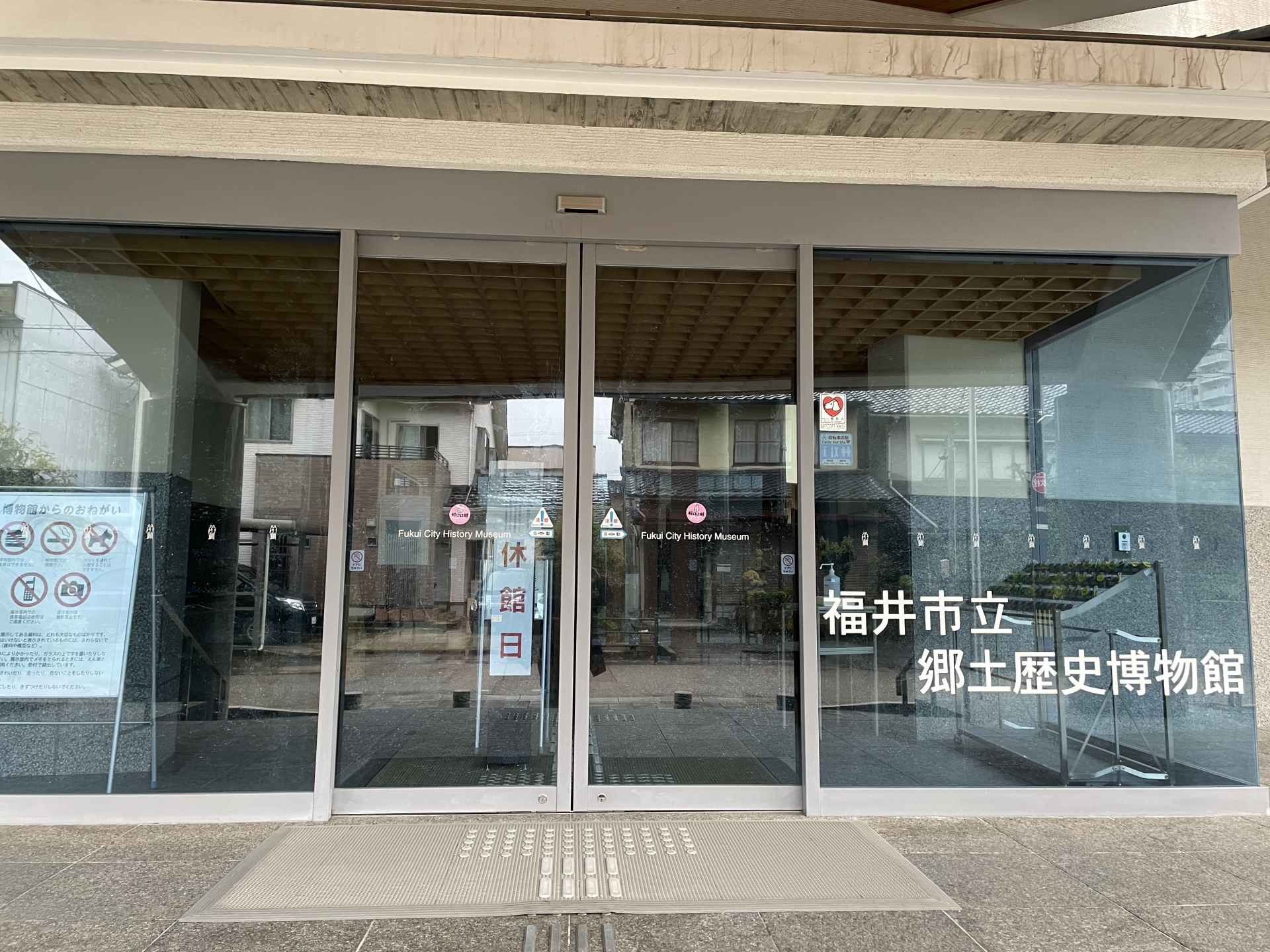
Nestled beside the historic Fukui Castle ruins, the Fukui City Museum of History offers an immersive journey through the rich cultural and historical tapestry of Fukui. This museum showcases a wide array of permanent exhibits that chronicle the life and times of the Matsudaira clan—former rulers of the Fukui Domain—as well as the everyday experiences of people in the castle town. Through detailed models and captivating CG displays, visitors can explore reconstructions of Fukui Castle’s central keep and the iconic Tsukumo Bridge, gaining insight into the city’s past architecture and urban life.
A unique highlight of the museum is the interactive experience “Henshin Echizen-ya”, where guests can dress in authentic Edo-period clothing and handle traditional tools, turning history into a hands-on adventure for all ages. Just outside the museum’s north side, visitors can also explore the reconstructed Toneri Gate ruins and preserved moat and embankment remains—an outdoor exhibition that brings the city’s archaeological discoveries to life.
Asuwayama Park 足羽山公園
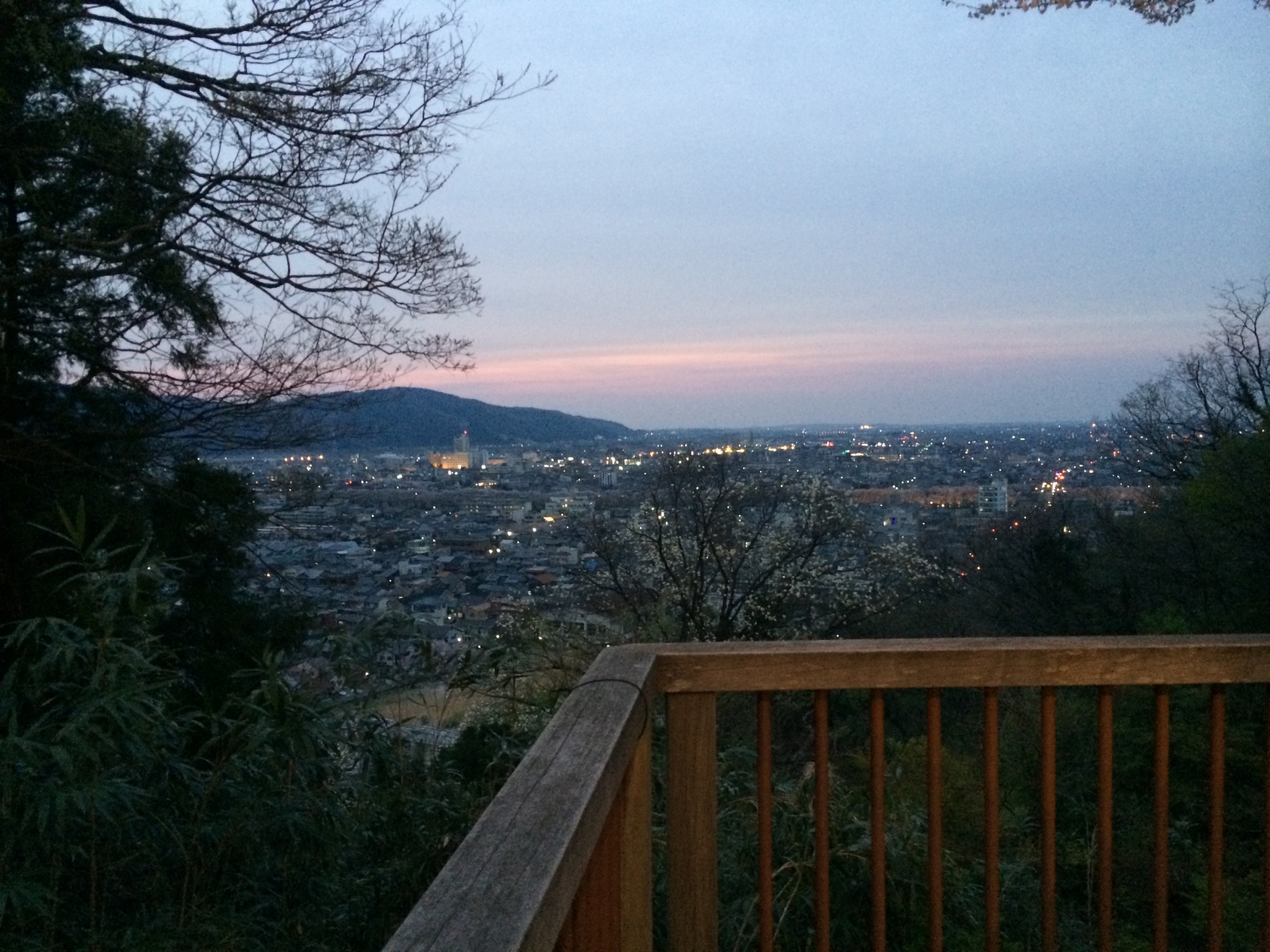
Located in the heart of Fukui City, Asuwayama Park is a beloved green oasis that beautifully blends nature, history, and family-friendly attractions. Rising to a gentle elevation of 116.4 meters, Mount Asuwa is home to lush walking paths, scenic overlooks, and cultural landmarks—including a statue of Emperor Keitai, who laid the foundations of Fukui’s early history. The park also features an impressive cluster of ancient burial mounds, the Atagozaka slope with its literary and artistic institutions like the Tachibana Akemi Literary Museum and Atagozaka Tea Ceremony Museum, as well as the Fukui City Museum of Natural History.
Asuwayama is particularly celebrated for its seasonal beauty. In spring, over 3,500 cherry trees bloom spectacularly across the park, earning it a place on the list of Japan’s Top 100 Cherry Blossom Spots. Come early summer, vibrant hydrangeas—the city flower—brighten the landscape with a burst of color. Families and animal lovers will also enjoy the Asuwayama Park Playground, which includes a mini zoo renovated in 2018 that now houses friendly residents like capybaras. Add in a field athletic area and peaceful picnic spots, and Asuwayama becomes the perfect destination for relaxation, exploration, and seasonal charm.
Whether you’re seeking a cultural stroll, a blossom-filled spring visit, or a fun day out with children, Asuwayama Park offers something for everyone in every season.
Fukui Prefectural Museum of Art 福井県立美術館
Nestled in a tranquil setting, the Fukui Prefectural Museum of Art is a cultural gem offering visitors a peaceful and enriching art-viewing experience. Since its opening in 1977, the museum has cultivated a prestigious collection guided by three core principles, with a special emphasis on artists connected to Fukui. Highlights include works by painters associated with Tenshin Okakura, a pivotal figure in Japan’s modern art movement whose parents hailed from Fukui, as well as by the distinctive Edo-period artist Iwasa Matabei, and artists of the Soga school, once patronized by the powerful Asakura clan of Echizen.
The museum also supports modern and contemporary art from both Japan and abroad, boasting a well-regarded collection of over 3,400 works (excluding items on deposit). These include masterpieces not only displayed within the museum’s calm, contemplative galleries but also featured in exhibitions across Japan. Visitors can also enjoy rotating special exhibitions, which bring fresh perspectives and globally recognized artworks to the local stage.
Seiren Planet (annex of the Fukui City Museum of Natural History)セーレンプラネット(福井市自然史博物館分館)
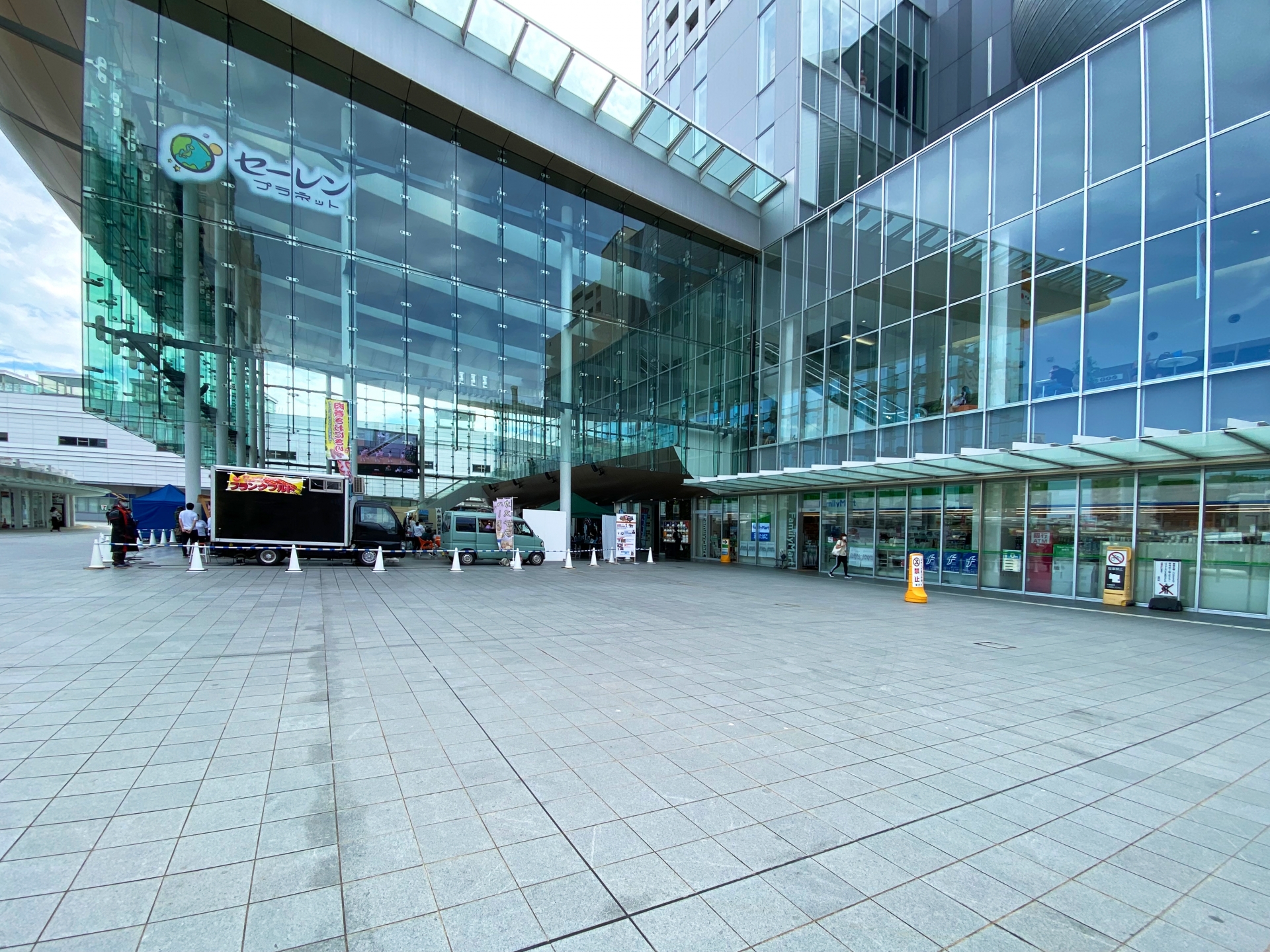
A cutting-edge science center in central Fukui City, Seiren Planet invites visitors of all ages to embark on a thrilling journey through Earth, space, and life itself. As an annex of the Fukui City Museum of Natural History, this hands-on museum features a wide variety of immersive exhibits, with a particular spotlight on astronomy and cosmic exploration. The main attraction is the spectacular Space Theater, a 17-meter-wide 8K dome planetarium that delivers breathtaking full-dome movies and highly realistic starfield programs—even dim stars are vividly rendered, making for an unforgettable stargazing experience indoors.
Inside the exhibition hall, the space is divided into five themed zones—Fukui, Earth, Solar System, Universe, and Culture—across 13 interactive displays. Highlights include the “Cultural Sphere,” which explores humanity’s imaginative and scientific connections to the cosmos throughout history, and the “Fukui Sphere,” offering locally-rooted insights through region-specific data, multimedia, and materials. This blend of science and culture not only informs but inspires a deeper connection to the universe and our place within it.
Perfect for families, curious minds, and anyone fascinated by the stars, Seiren Planet is a dynamic and educational experience that brings space exploration vividly down to Earth.
the Echizen Coast 越前海岸(福井市エリア)
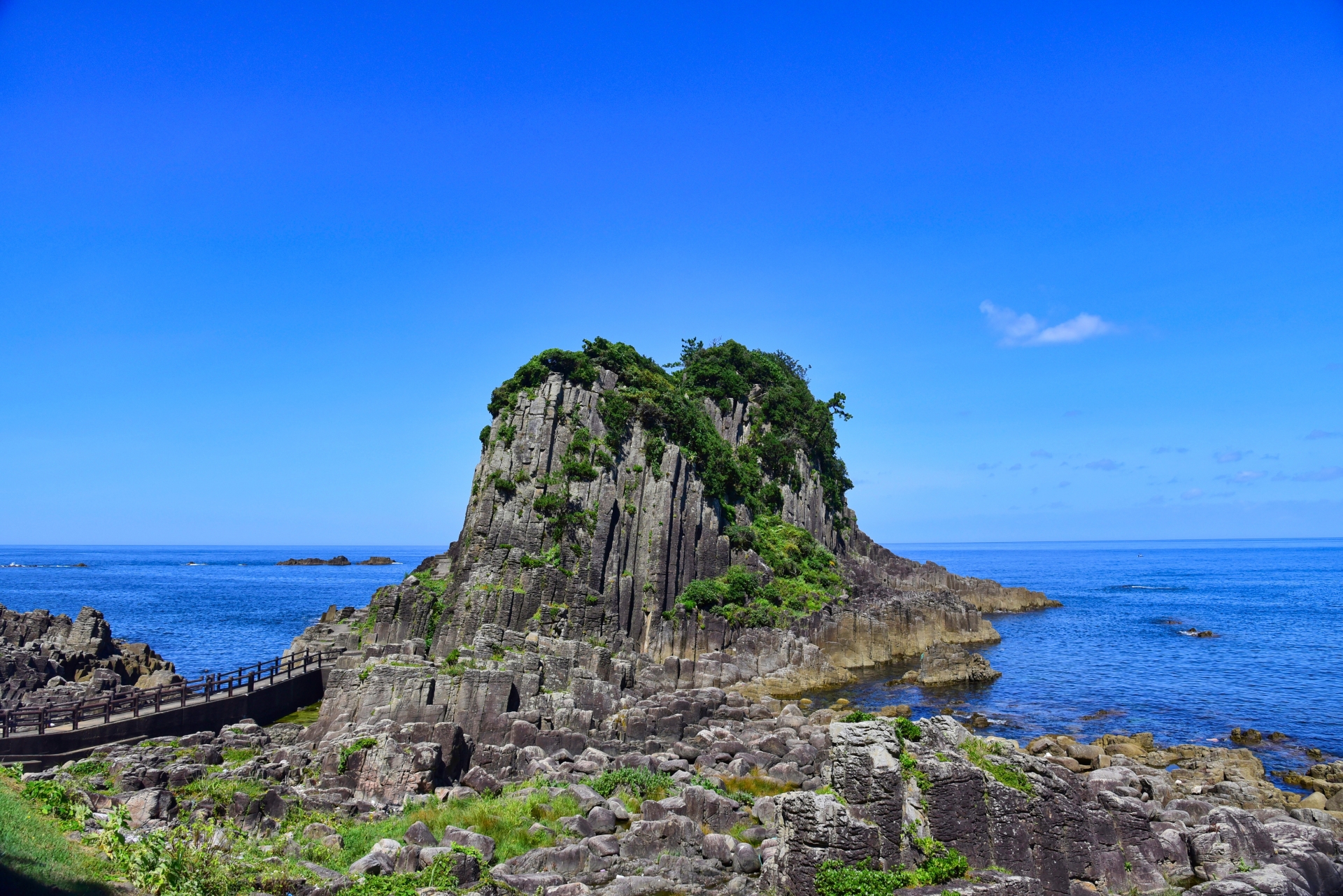
Stretching along the rugged western edge of Fukui City, the Echizen Coast is a breathtaking stretch of coastline celebrated for its soaring cliffs, dramatic rock formations, and awe-inspiring sunsets. Unlike the gentle ria coastlines of Wakasa Bay, this region is characterized by bold, uplifted coastal terrain shaped by relentless waves and wind over millennia. Designated as part of a national quasi-park, it extends from the iconic Tōjinbō Cliffs in the north to Sugadaira in Tsuruga in the south, with Cape Echizen projecting proudly into the Sea of Japan at its center.
One of the coast’s most symbolic sights is Kochōmon, a massive natural sea arch once straddled by a national highway but now accessible by a scenic walking path. Nearby stands Chōfun’iwa (Bird Droppings Rock)—a dramatic 100-meter cliff where seabirds nest, leaving a striking white stain that inspired its name. Further south lies Cape Echizen, a revered location named among Japan’s 100 Best Sunset Spots. Towering at 130 meters, this cape offers panoramic views from its summit observation deck, where visitors can see the Echizen Suisen Land, the pristine white Cape Echizen Lighthouse, and even grasp the curvature of the Earth as they gaze over the vast Sea of Japan.
The coast is also famed for its seasonal seafood, especially the prized Echizen crab in winter, and for the Echizen narcissus, one of Japan’s three great daffodil colonies, painting the mountain slopes with delicate blossoms in colder months.
Whether you’re driving the scenic coastline, exploring geological wonders, or catching a sunset from a dramatic cliff edge, the Echizen Coast offers an unforgettable encounter with the raw beauty of Japan’s natural heritage.
Happiring (multi-purpose complex) ハピリン
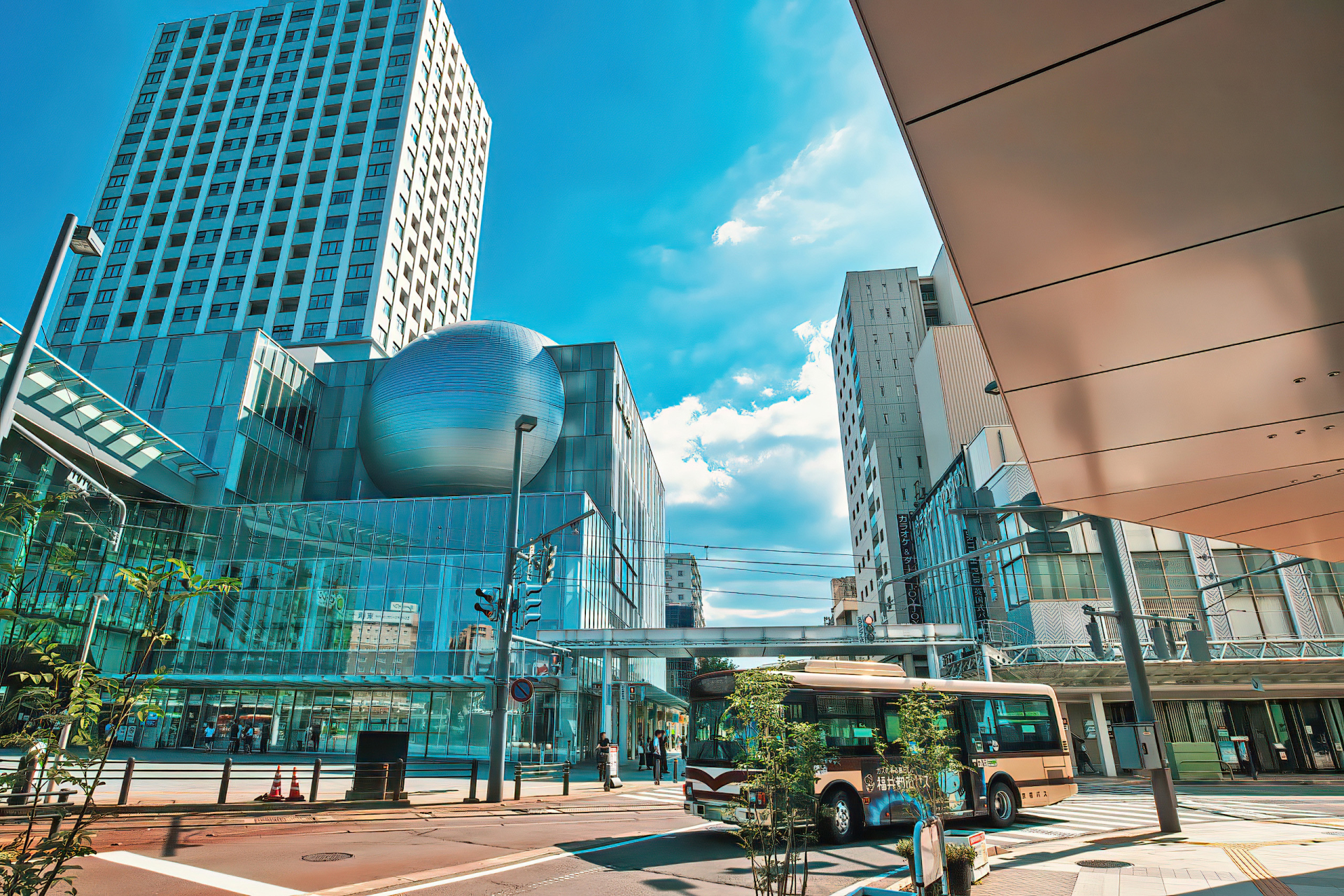
Conveniently connected to the west exit of JR Fukui Station, Happiring is a vibrant multi-purpose complex that serves as both a cultural gateway and a hub of activity for travelers and locals alike. Inside, you’ll find Fukufuku-kan, a specialty market brimming with local Fukui cuisine, souvenirs, and handicrafts, making it the perfect stop for regional gifts and gourmet delights. The facility also houses restaurants, cafes, convenience stores, a tourist information center, and even a planetarium as part of the adjacent Seiren Planet science museum.
A highlight of Happiring is the Hapiterasu, an all-weather glass-covered plaza on the ground floor equipped with a large screen. This dynamic event space regularly hosts seasonal markets, gourmet festivals, live performances, local showcases, and even a winter ice skating rink, creating a lively and welcoming atmosphere year-round. Visitors can also enjoy a rooftop garden for a moment of calm amidst the city’s bustle.
Whether you’re just arriving in Fukui or looking for a central place to eat, shop, or relax, Happiring is the perfect first stop—and an experience in itself.
